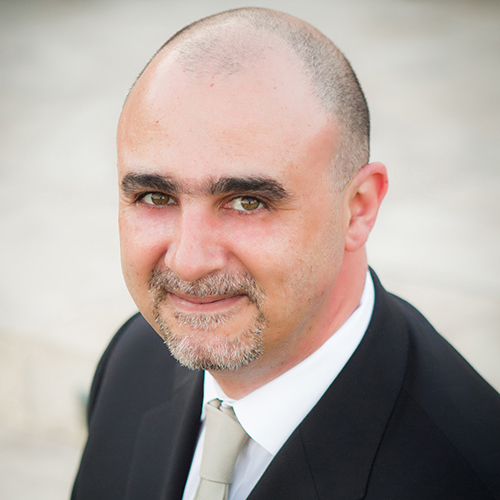On the lighter side of things, we ask Mehdi Daoudi, CEO and Co-founder, Catchpoint, what makes him tick.

What would you describe as your most memorable achievement?
When Catchpoint signed our first million-dollar customer. That’s always an important milestone in the life of a company – it shows the path is doable and possible. The good thing is we have a lot more now.
What first made you think of a career in technology?
My first computer was a Commodore 64. It changed my entire life.
Then in ’92, I discovered the Internet while I was studying in Paris. I’d heard about it before but that’s when I first touched, smelled, experienced it… I felt this would be my generation’s Gutenberg moment. I could see the way it could change the world and how we communicate and share knowledge with one another. I think we’ve barely scratched the surface, I am jealous of what my kids and grandkids will have at their fingertips.
What style of management philosophy do you employ with your current position?
That’s always a work in progress. As each person grows and their responsibility changes, one’s management and philosophy style keep changing too (I will even say must keep changing)
Throughout Catchpoint, at the executive level and across the company as a whole, much of what we’ve achieved has been based on trust. I have become a huge fan of Patrick Lencioni and I embrace his methodology of overcoming the five dysfunctions of a team, starting by establishing trust between team members so we can be open with one another, without filters.
We are also embracing more and more transparency through the OKR system – I can see this helping a great deal in creating alignment throughout the company.
What do you think is the current hot technology talking point?
To be honest, I’m tired of hot technology talking points. As an industry, we must learn how to stop overusing buzz words. We’re losing trust with our buyers and the community. I was at a conference where someone said what do you think of DevSecOps? When I look at other industries around us, you never hear a dentist say, I practice dentistry, podiatry and heart surgery. It’s disconcerting.
One thing I’m excited about outside of buzzwords is the fact that more and more companies are looking less at generating data, and more at how to connect the dots between the data they already have. To answer complex questions better and faster. I think we are at the dawn of an interesting and exciting moment.
Another thing close to my heart is edge compute – doing everything possible to reduce latency between the end-user and the tech they use… Anything that makes the Internet faster and better is cool.
How do you deal with stress and unwind outside the office?
Family. Cooking. Traveling. Although traveling is stressful these days.
If you could go back and change one career decision, what would it be?
The only thing I wish I could have done differently in my career is getting an MBA when I was younger. It would have taught me a lot of important concepts that would have remained useful today, which I had to learn the hard way.
What do you currently identify as the major areas of investment in your industry?
We are at the beginning of massive data lake warehouses – all the data from business, observability and other sources will live in one place so that people can triangulate better and answer questions better and faster – we are starting to see this among our customers.
What changes to your job role have you seen in the last year and how do you see these developing in the next 12 months?
Over the last 12 months and across the pandemic as a whole, we’ve transitioned to being a fully distributed remote-first organization. In which you need to double down your efforts on instilling a shared culture and making sure that people stay aligned with a common thread and focus. That has been the biggest change.
The other major change is as a CEO, you’re asked to weigh in more and more on social issues and that can be a difficult line to tread.
What advice would you offer somebody aspiring to obtain a C-level position in your industry?
Focus on showing versus telling what you can do, meaning that what we are interested in seeing is how someone has done something as opposed to just saying you’ve done it. Additionally, make sure you can show you are well rounded and can understand not only your functional department but how you manage horizontally and work with peers across the organization. That’s extremely important at the C level. Those cross departmental interconnects are very important and along with successfully running your own department, are ultimately what makes a great C level person.
Click below to share this article

